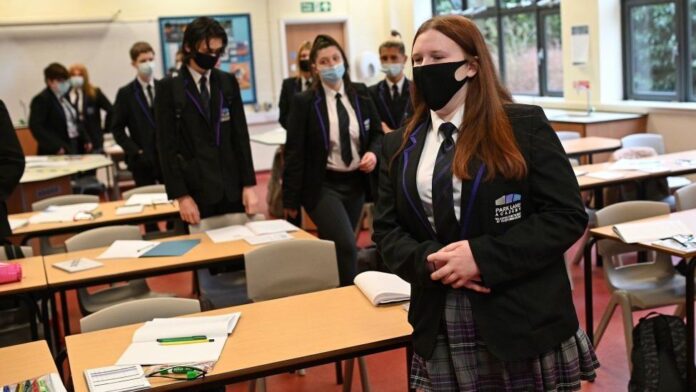Much good progress has been made across the education sector to help children and learners recover the knowledge and skills they missed out on during the pandemic.
However, amid strong signs of recovery, it’s also clear that many education providers continue to face challenges, some of which could have longer-term consequences particually within younger pupils development.
The report from OFSTED draw on evidence from around 280 inspections and multiple focus groups with inspectors to understand how early years, schools, further education and skills, and prison education providers are responding to ongoing issues, and the approaches they are taking to help children and learners catch up.
Ofsted Chief Inspector, Amanda Spielman, said:
We have seen lots of really good work across early years, schools and further education this term. Most providers are using effective catch-up strategies to spot gaps in children and learners’ knowledge and skills and help get them back to where they need to be. In many cases, those gaps have closed altogether. And we’ve also seen promising improvements in children’s well-being and behaviour.
But elsewhere concerns remain, and it’s clear that the pandemic has created some lingering challenges. I’m particularly worried about younger children’s development, which, if left unaddressed, could potentially cause problems for primary schools down the line.
Amid early years pupils,The pandemic has continued to affect young children’s communication and language development, with many providers noticing delays in speech and language. Others said babies have struggled to respond to basic facial expressions, which may be due to reduced social interaction during the pandemic.
The negative impact on children’s personal, social and emotional development has also continued, with many lacking confidence in group activities.
Children’s social and friendship-building skills have been affected. Some providers reported that toddlers and pre-schoolers needed more support with sharing and turn-taking. To address this, staff were providing as many opportunities as possible for children to mix with others and build confidence in social situations.
There continues to be an impact on children’s physical development, including delays in babies learning to crawl and walk. Some providers reported that children had regressed in their independence and self-care skills. As a result, several have increased the amount of time children spend on physical activities, to develop gross motor skills.
An increasing number of providers were concerned that, compared with before the pandemic, fewer children have learned to use the toilet independently. This means that more children may not be ready for school by age 4. Providers were also concerned about obesity and dental health, so have focused on providing well-balanced meals and increased time for physical activity.
Many providers reported difficulties retaining high-quality staff since the start of the pandemic. This has left some short of skilled practitioners, which has affected the quality of teaching and catch-up strategies.
Some providers are concerned about their long-term sustainability given fluctuations in numbers of children on roll.
In schools the pandemic continued to hinder pupils’ learning and personal development into this year. Leaders still described gaps in pupils’ knowledge, particularly in mathematics, phonics and writing stamina. However, compared with last term, more leaders said these gaps were closing.
Inspectors saw schools were using effective strategies to check what pupils have learned and to adapt the curriculum to fill gaps in knowledge and skills. Some schools were using regular assessment to identify what pupils have remembered and providing time to revisit concepts that had not been learned well remotely.
The pandemic’s impact on some pupils’ mental health and well-being remained a concern. Leaders talked about pupils having lower levels of resilience and confidence, and increased levels of anxiety. Many schools were providing in-house support for these pupils because external agencies often had long wait times. This has been particularly challenging for special schools, who rely on a lot of support from other agencies.
Some schools were using the National Tutoring Programme to help pupils who need additional support, but most told Ofsted they preferred to train their own staff as tutors rather than using tuition partners, mainly due to a lack of available tutors. However, this placed additional pressures on school staff.
Staff absence related to COVID-19 was a challenge for schools in the spring term, which was exacerbated by difficulties recruiting supply teachers. This resulted in increased staff workloads, as schools used their own staff to cover lessons.







